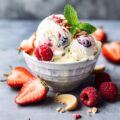When we think of Dutch cuisine, images of cheese, stroopwafels, and deep-fried snacks might come to mind. However, the modern Dutch diet is much more than these indulgent treats. In fact, the Netherlands has made significant strides in promoting a balanced and nutritious eating pattern that combines tradition with contemporary health knowledge. Let’s explore the benefits of the Dutch diet and how it contributes to overall wellbeing.
The Foundations of the Dutch Diet
The Dutch diet is characterized by its emphasis on whole foods, moderation, and sustainability. It’s not about strict rules or eliminating food groups, but rather about creating a balanced and enjoyable approach to eating. Here are some key elements:
- Plenty of vegetables and fruits
- Whole grains and legumes
- Moderate amounts of dairy
- Fish and lean meats
- Limited processed foods
This approach aligns closely with many nutritionists’ recommendations for a healthy diet, making it a sustainable and beneficial way of eating for many people.
Embracing Plant-Based Foods
One of the standout features of the Dutch diet is its strong focus on plant-based foods. The Netherlands is known for its agricultural prowess, and this is reflected in the diet’s emphasis on fresh, locally-grown produce. Vegetables and fruits form the cornerstone of many Dutch meals, providing essential vitamins, minerals, and fiber.
Dutch cuisine often includes hearty vegetable soups, colorful salads, and steamed or roasted vegetable sides. This plant-centric approach not only boosts nutritional intake but also supports environmental sustainability – a value deeply ingrained in Dutch culture.
The Role of Dairy in Dutch Nutrition
While the Dutch are famous for their cheeses, dairy plays a balanced role in their diet. Moderate consumption of dairy products, including milk, yogurt, and cheese, provides valuable nutrients like calcium and protein. The Dutch approach to dairy emphasizes quality over quantity, often favoring full-fat, minimally processed options in reasonable portions.
Interestingly, despite their love for cheese, the Dutch typically consume it in moderation, often as part of a balanced meal or as a small snack. This mindful approach to dairy consumption contributes to the overall health benefits of the Dutch diet.
Seafood and Lean Proteins
Given the Netherlands’ coastal location, it’s no surprise that fish plays a significant role in the Dutch diet. Regular consumption of fatty fish like herring, mackerel, and salmon provides essential omega-3 fatty acids, which are beneficial for heart and brain health.
In addition to seafood, the Dutch diet includes moderate amounts of lean meats and poultry. Protein sources are often incorporated into meals in sensible portions, balancing out the plant-based components of the diet.
Mindful Eating and Lifestyle
Perhaps one of the most valuable aspects of the Dutch approach to food is the emphasis on mindful eating and enjoying meals as a social activity. The Dutch typically eat three main meals a day, with dinner being a time for family gathering and connection. This structured approach to mealtimes can help prevent overeating and promote a healthy relationship with food.
Moreover, the Dutch lifestyle often incorporates regular physical activity, with cycling being a popular mode of transportation. This combination of a balanced diet and active lifestyle contributes significantly to overall health and wellbeing.
FAQ: Understanding the Dutch Diet
Q1: Is the Dutch diet suitable for vegetarians?
A1: Yes, the Dutch diet can easily be adapted for vegetarians. With its strong emphasis on vegetables, fruits, whole grains, and legumes, it provides plenty of plant-based options. Dairy and eggs can be included for lacto-ovo vegetarians, while vegans can focus on plant-based proteins and dairy alternatives.
Q2: How does the Dutch diet contribute to heart health?
A2: The Dutch diet can be beneficial for heart health due to its focus on whole foods, vegetables, fruits, and fatty fish. These components are rich in fiber, antioxidants, and omega-3 fatty acids, which are known to support cardiovascular health. Additionally, the moderate approach to dairy and meat consumption helps maintain a balanced intake of saturated fats.
Q3: Are there any unique Dutch foods that are particularly healthy?
A3: Yes, several traditional Dutch foods are quite nutritious. For example, stamppot, a dish made with mashed potatoes and vegetables, is rich in vitamins and fiber. Herring, a popular fish in the Netherlands, is an excellent source of omega-3 fatty acids. Dutch whole grain bread, often eaten for breakfast or lunch, provides complex carbohydrates and fiber.
Q4: How does the Dutch diet compare to the Mediterranean diet?
A4: The Dutch diet shares some similarities with the Mediterranean diet, such as an emphasis on vegetables, fruits, whole grains, and fish. However, the Dutch diet typically includes more dairy products and may have a higher consumption of potatoes. Both diets promote a balanced, whole-food approach to eating and are associated with various health benefits.
Q5: Can following a Dutch-style diet help with weight management?
A5: Yes, adopting principles from the Dutch diet can support healthy weight management. The focus on whole foods, vegetables, and mindful eating can help control calorie intake naturally. Additionally, the balanced approach to meals and regular physical activity that often accompanies the Dutch lifestyle can contribute to maintaining a healthy weight.
Embracing the Dutch Approach to Eating
The Dutch diet offers a compassionate and balanced approach to nutrition that prioritizes both personal and planetary health. By emphasizing whole foods, particularly vegetables and fruits, it provides a nutrient-rich foundation for wellbeing. The mindful approach to eating and the integration of food into social life adds a dimension of joy and connection to the act of nourishing ourselves.
While every individual’s nutritional needs may vary, the principles of the Dutch diet – moderation, balance, and enjoyment of whole foods – can be beneficial for many. As we navigate the complex world of nutrition advice, perhaps we can take a page from the Dutch book: eat well, enjoy your food, and make room for both nourishment and pleasure in your diet.
Remember, the journey to better health is not about perfection, but about making sustainable, enjoyable choices that support our wellbeing. The Dutch diet reminds us that healthy eating can be both delicious and satisfying, fostering a positive relationship with food that can last a lifetime.









